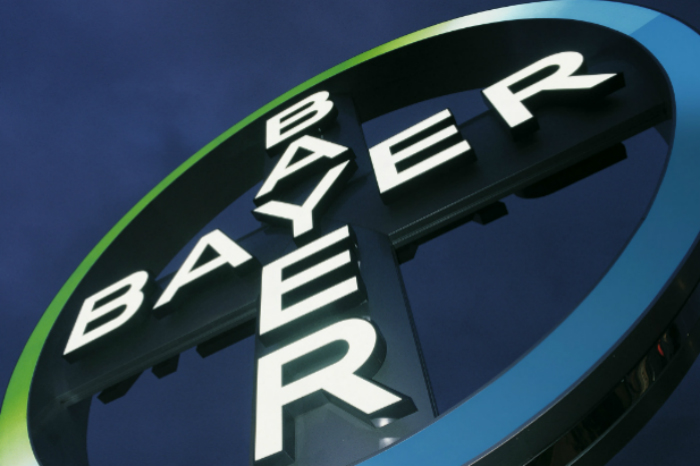Promising drug pipeline, focus on gene therapy and innovative digital health solutions will remain the key pillars of Bayer’s pharmaceutical business

With an unprecedented number of more than 25 collaboration agreements and acquisitions, leading life sciences major, Bayer is transforming its pharmaceutical business by investing heavily in external innovation. The company is also putting the onus on breakthrough innovation which will significantly help patients suffering from conditions currently still difficult to treat.
Outlining the company’s strategy for the next decade, Stefan Oelrich, Member of the Board of Management, Bayer and President of Bayer’s Pharmaceuticals Division said, “Our company is at the forefront of the wave of innovation in cell and gene therapy as well as digital health. We are driving this transformation and growing our promising development portfolio together with our partners. Our joint goal is to bring breakthrough treatments to patients and make healthcare systems more sustainable in the mid and long-term.”
Through its partnerships within the digital space and in research and development, the company is expecting to develop new solutions for patient care besides a strong medicine pipeline. It expects the new product launches to fetch more than 2 billion Euros in sales. At the same time with its deep chemical expertise and strong library of 175 plus molecules, Bayer will also continue to work on drug discovery through the traditional approach.
Big focus on cell and gene therapy
Bayer’s increasing investments in cell and gene therapy are consolidating the company's emerging leadership and confirm its strategic significance as a growth driver for its pharmaceutical business. It has just established a new Cell and Gene Therapy Platform that steers its strategy in the area and orchestrates all activities along the value chain providing an innovation ecosystem for all partners.
Bayer’s development portfolio of cell and gene therapies already comprises seven advanced assets in different stages of clinical development. These are focused on multiple therapeutic areas with high unmet need, such as neurodegenerative, neuromuscular, and cardiovascular indications, with leading programs in Pompe disease, Parkinson’s disease, hemophilia A and congestive heart failure. With over fifteen preclinical assets in the cell and gene therapy field, the pipeline is expected to grow steadily year by year.
“Cell and gene therapies hold the promise to significantly impact patients’ lives by moving from treating symptoms to potentially curative approaches,” said Wolfram Carius, Executive VP and Head of Cell and Gene Therapy at Bayer.
“Together with our partners, we want to accelerate innovation at its source and along the whole value chain to ensure a fast translation of science into therapies for patients who have no time to wait,” added Carius.
Riding high on a robust drug pipeline
Bayer is continuing to build a strong development pipeline advancing more than 50 projects through the clinic with a focus on cardiovascular diseases, oncology and women’s health. The company highlighted two promising pipeline programs in mid-stage development demonstrating medical innovation at Bayer.
The company is advancing a promising mid-stage program of Factor XI (FXI) targeting compounds, a new class of anticoagulants, comprising three investigational assets. A small-molecule oral FXIa-inhibitor has commenced a Phase IIb program (PACIFIC), planning to enroll more than 4,000 patients in total. In addition, an anti-FXIa antibody and an FXI-ligand-conjugated antisense oligonucleotide (FXI-LICA), which Bayer is developing under exclusive license from IONIS Pharmaceuticals, have recently started Phase II trials in patients with end-stage kidney disease.
With its P2X3 multi-indication program, Bayer has another important candidate in mid-stage development. The promise of P2X3 antagonists was first identified for endometriosis within the company’s strategic research alliance with Evotec, a Germany- based drug discovery and development company. P2X3 also has a prominent role in several other medical conditions associated with pain and neurogenic hypersensitivities such as chronic cough, overactive bladder and neuropathic pain.
The company is also successfully delivering on its late-stage pipeline in the areas of oncology and cardiovascular disease including also a number of potential blockbuster products.
Bayer has also submitted Finerenone, an investigational first-in-class treatment for patients with chronic kidney disease (CKD) and type 2 diabetes (T2D), for marketing approval in the US and in the EU based on Phase III data from the FIDELIO-DKD trial.
In the field of women’s healthcare, Bayer recently added a highly attractive asset to its development portfolio through the acquisition of KaNDy Therapeutics. BAY-342 (formerly NT-814) is a first in class, non-hormonal, once-daily, oral neurokinin-1,3 receptor antagonist for the treatment of vasomotor symptoms during menopause, planned to start Phase III development in 2021.
Leveraging digital platforms to create integrated solutions
For its digital business strategy in pharmaceuticals, Bayer is focusing on integrated care as a key element. In collaboration, Bayer and the digital health company, Informed Data Systems (also known as One Drop) are expanding their business based on the latter's existing diabetes management platform that has more than 3 million users.
Together, the companies are now creating new health offerings to address the needs of patients in the areas of cardiovascular diseases, women’s health and oncology. Experts from both companies are jointly working on the first two modules, which are to become available within a year.
Jeanne Kehren, Senior VP of Digital & Commercial Innovation and Member of the Pharmaceuticals Executive Committee of Bayer said, “We are determined to make integrated care solutions a major pillar of our company’s pharmaceutical business. Building on our expertise in the pharmaceutical sector, we can bridge the gap between tech and healthcare. In the next ten years, we expect digital health offerings to significantly contribute to our revenues.”
Register Now to Attend NextGen Chemicals & Petrochemicals Summit 2024, 11-12 July 2024, Mumbai

Subscribe To Our Newsletter & Stay Updated